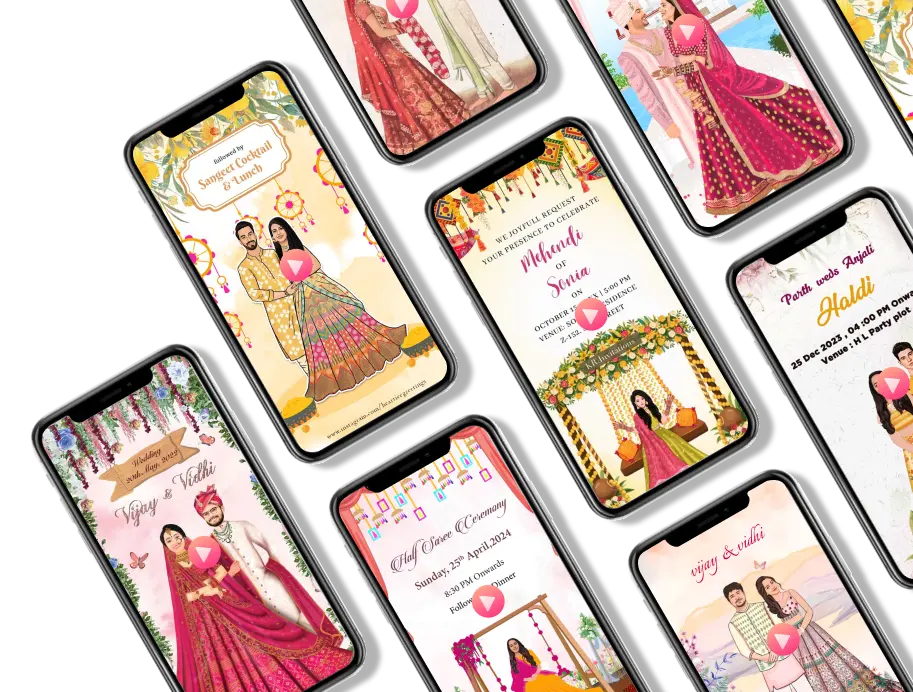The Teej Festival is one of the most popular and significant festivals celebrated by women in India, particularly in the northern and western regions. It marks the arrival of the monsoon season and celebrates marital bliss, fertility, and devotion. The festival is observed by married women who pray for the well-being of their husbands and their marital happiness. The festival is vibrant, filled with joy, songs, dances, and traditional rituals.
The Significance of Teej Festival
The Teej Festival is dedicated to Goddess Parvati and her reunion with Lord Shiva. It symbolizes the power of devotion, love, and the eternal bond of marriage. According to Hindu mythology, Goddess Parvati observed a strict fast and meditated to win Lord Shiva as her husband. Her devotion and patience were eventually rewarded, leading to the reunion of the two deities. This story forms the essence of the Teej Festival, emphasizing the themes of love, devotion, and patience.
The festival is celebrated during the monsoon season, and it is believed that the rain symbolizes fertility and abundance. Women pray for a prosperous and happy married life, seeking the blessings of Goddess Parvati for their husbands’ long life and well-being. The celebration also represents the joys of married life, with women coming together to celebrate in a vibrant, joyous manner.
Rituals and Customs of Teej Festival
The rituals and customs associated with Teej Festival are rich in tradition, with each step reflecting devotion, love, and unity. The celebrations typically last for three days, with the first day known as "Teej" itself, followed by "Haryali Teej" and "Kajari Teej." Let’s explore the key rituals associated with this vibrant festival.
1. Fasting and Prayers
The most important aspect of Teej is the fasting observed by married women. They fast for the well-being and long life of their husbands. The fast is rigorous, as women do not consume food or water for the entire day. During the fast, women pray to Goddess Parvati and Lord Shiva, seeking their blessings for marital happiness and strength. This fast symbolizes devotion and selflessness, with the women dedicating themselves to the happiness of their husbands.
2. Dressing in Traditional Attire
Women dress in traditional attire, typically wearing green clothes, which is considered an auspicious color for the festival. Green symbolizes prosperity, growth, and fertility, and it is believed to bring good luck. Women often wear heavy jewelry, including bangles, which are an important part of the celebration. The vibrant clothing and jewelry reflect the joyous and festive atmosphere of the occasion.
3. Singing and Dancing
One of the most joyful aspects of the Teej Festival is the singing and dancing that takes place. Women gather in groups and sing traditional songs that celebrate the essence of Teej, expressing their devotion to Goddess Parvati. These songs, known as "Teej Geet," are filled with love, longing, and joy. The dances are performed in a celebratory manner, with women dancing to the rhythm of the music, creating an atmosphere of camaraderie and unity.
4. The Swing Ritual
A significant ritual during the Teej Festival is the swinging ceremony. Women decorate swings with flowers and hang them from trees or other structures. They then take turns swinging on these swings while singing songs and praying. The swing represents the cyclical nature of life and is believed to bring joy, prosperity, and fertility. It is a symbolic ritual of letting go of one’s troubles and welcoming happiness and abundance into their lives.
5. Gathering of Women and Community Celebrations
The Teej Festival is a community celebration, where women come together to share their experiences and joy. They gather in large groups, often in public spaces or temples, to participate in rituals, sing songs, and enjoy each other's company. This sense of community is central to the festival, as it strengthens the bond between women and celebrates the power of collective devotion.
The Spiritual Significance of Teej Festival
Teej is not only a festival of celebration but also one of deep spiritual significance. It reminds married women of the importance of devotion, patience, and love in their marriages. The fast is a symbol of commitment, where women dedicate themselves to the happiness and well-being of their husbands. Through this devotion, women express their gratitude for their marital bond and pray for the long life and prosperity of their spouses.
The festival also serves as a reminder of the eternal love between Goddess Parvati and Lord Shiva. It emphasizes the idea that love, patience, and faith can overcome any obstacles, and that true devotion brings happiness and fulfillment. For women, Teej is a chance to reconnect with their faith, strengthen their devotion, and celebrate the joy of married life.
Celebrating Teej in Different Regions
Although the Teej Festival is celebrated across India, the customs and rituals vary slightly depending on the region. In Rajasthan, Teej is a major festival, with grand celebrations taking place in temples and public spaces. Women dress in bright green clothes, perform traditional dances, and enjoy a communal feast. In Punjab, the festival is celebrated with much enthusiasm, with women gathering to sing songs and perform the swing ritual.
In Uttar Pradesh and Bihar, the festival is known as "Hariyali Teej" and is associated with the worship of Lord Shiva and Goddess Parvati. Women dress in traditional attire, observe fasting, and participate in prayers and rituals. Each region brings its unique flavor to the festival, making it a rich cultural experience that highlights the diverse traditions of India.
Conclusion
The Teej Festival is a celebration of love, devotion, and marital bliss. It brings women together to honor the divine bond between Goddess Parvati and Lord Shiva and to pray for the happiness and longevity of their husbands. The festival is filled with vibrant customs, including fasting, singing, dancing, and swinging, all of which create a festive and joyous atmosphere. Teej reminds us of the importance of love, faith, and devotion in relationships and serves as a beautiful celebration of the bond of marriage.


